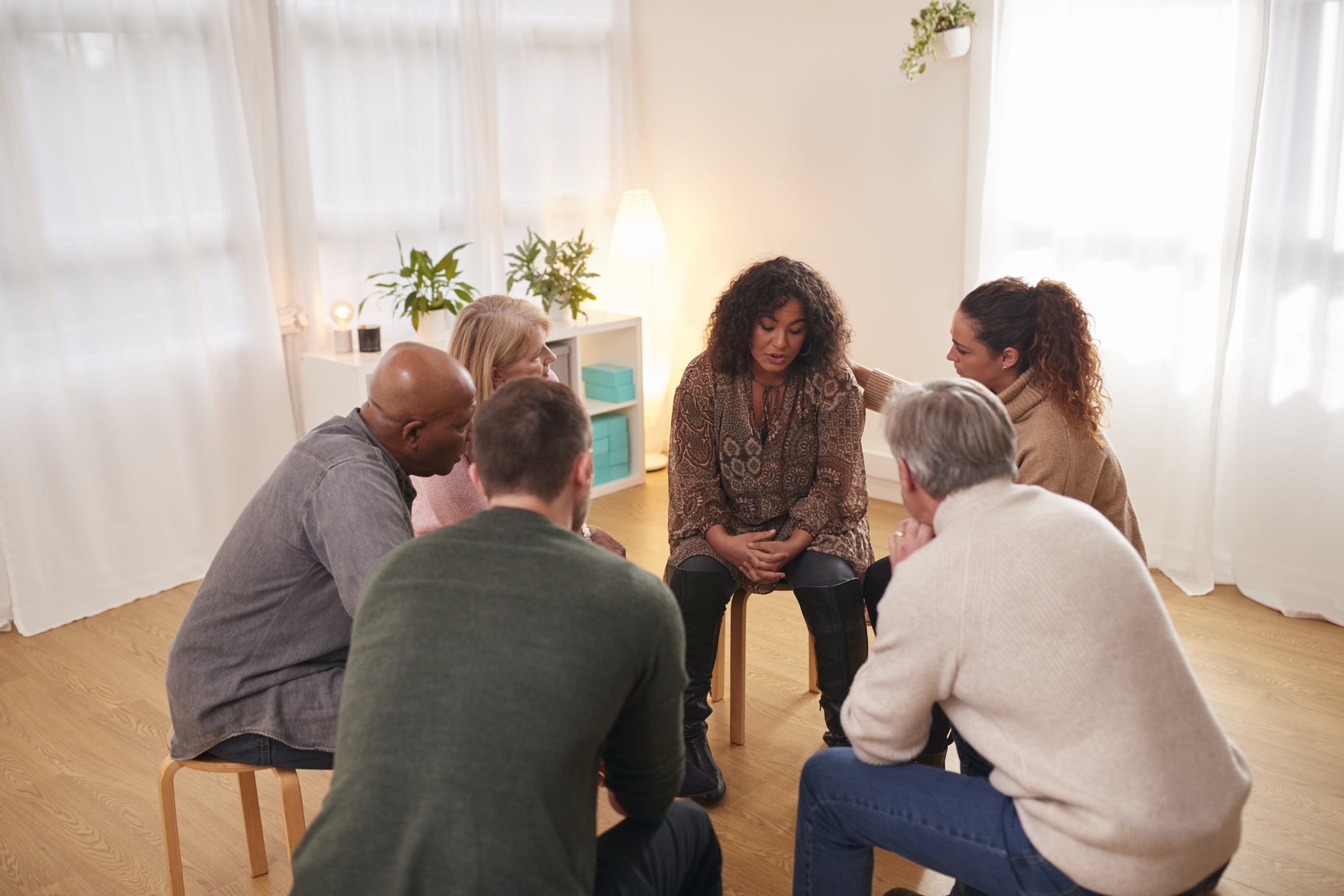Coping with a chronic disease is not an easy task! The journey is challenging, tiring, frustrating–often depressing, and lonely. One can feel that no one is experiencing or understanding their respective circumstances. A support group is a confidential and safe place to share with others, as well as a place to develop a special and unique comradery with those who participate. The Dialysis Patient Citizens Education Center formed a support group called the “Kidney Chat”. The group meets every second Tuesday at 2:00 pm EST via telephone. The telephone number is (866) 230-9002; the code is 420 835 078#. Various guests, such as nephrologists, transplant surgeons, psychologists, nurses, nutritionists, social workers—just to name a few, are invited each month to share their expertise. Join us—you will be glad that you did!
The following information can be found on the DaVita Kidney Care website (davita.com).
Support Groups for People Living with Kidney Disease
Talking to others who are also going through chronic kidney disease (CKD) or dialysis can be a much-needed opportunity to vent, share information, get advice and receive and provide support.
Nowadays, support groups can be found in all sorts of places. One great place to connect with others is online. There are many discussion forums and email lists that help bring together people who share a common interest.
How do I find an in-person support group in my area?
Renal social workers are available in the centers to provide information on existing support groups. For those not on dialysis or dialyzing at home, it may take a little more effort to find a support group.
Speak to your doctor about any groups or organizations he or she may know of in your area. You might also contact local dialysis centers (even if you are not on dialysis) to find out if the social workers at the centers, know of any local support groups.
How can I start my own support group?
Consider starting a group in your area where members can meet face-to-face. Some of the national, nonprofit organizations help with setting up local chapter support groups and may even provide some financial support.
You may want to arrange a meeting with a renal social worker in a local dialysis center. Because social workers have expertise in group dynamics and other factors related to creating a successful support group, talking to a social worker is a great first step.
Are you ready to be a support group leader?
Ask yourself the following questions before you commit to creating a support group:
- Do I have the time to plan, conduct and recruit a support group?
- Will I be able to attend every meeting?
- Am I comfortable speaking in front of a group?
- Can I effectively keep meetings on track?
- Am I able to maintain a positive, encouraging and hopeful attitude?
- Am I a good listener?
If you answered, “Yes,” to most of these questions, you may want to start forming your group. Other things to consider when forming your group include:
- Appoint co-leaders to help you share the work.
- Define your group’s target audience. Is it for people with early stage kidney disease or people on dialysis or both?
- Select a name.
- Choose a meeting time, place and frequency.
- Advertise the group and your meeting times.
- Make an agenda for you meeting
- Stay in touch with members via email.
You aren’t alone with kidney disease. There are millions of people in the United States who are affected by kidney disease. Reach out online or in-person to find those who share your experience and get the support you need.




